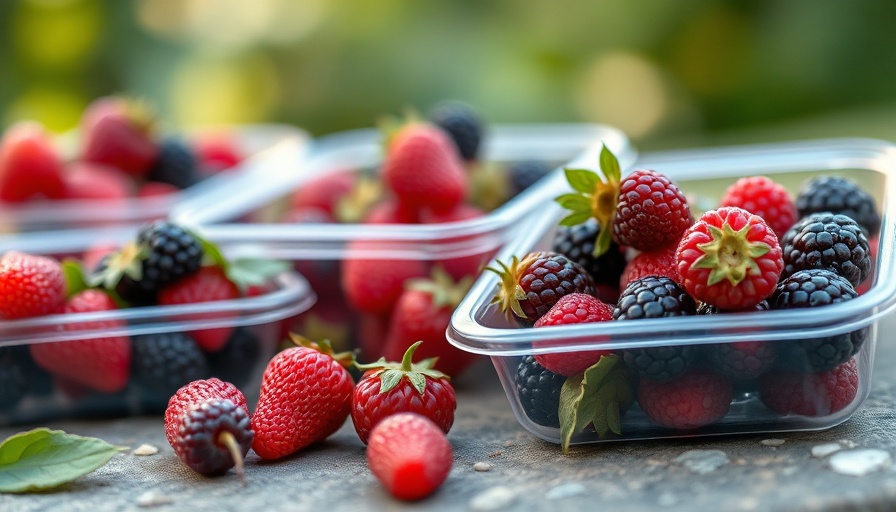
A Caregiver's Guide to Balanced Nutrition
Providing care for loved ones often comes with a significant emotional and physical toll, especially when it comes to maintaining one's own nutritional needs. A staggering 60% of caregivers report that their dietary habits suffer as they prioritize the needs of those they care for. However, with some foresight and support, achieving balanced nutrition is attainable for both caregivers and their loved ones.
Understanding Clean Eating as a Foundation
Clean eating is a straightforward philosophy that encourages the consumption of whole, minimally processed foods. This approach not only fuels energy but also supports immune function, essential for both caregivers and seniors. For caregivers juggling tight schedules, the concept of clean eating becomes even more vital, demanding strategic planning that adheres to real-life constraints like time, budget, and unique dietary needs.
The Importance of Professional Support
Incorporating the skills of professional caregivers can significantly enhance nutritional outcomes. These experts can aid with meal planning, shopping, and food preparations, ensuring nutritious meals are easy to achieve. Home care services today often include special nutritional training, designed to assist not just those being cared for, but also the caregivers themselves, allowing for a dual benefit.
Practical Meal Planning Strategies
A successful meal planning strategy doesn’t require an intricate menu but rather simple yet effective techniques. From planning versatile vegetables to choosing nutrient-rich proteins, caregivers can create appealing yet nutritious meals. Batch cooking on off-days can also save time during the week, allowing caregivers to focus on other aspects of care.
Facing Dietary Challenges
Navigating the dietary restrictions and appetite fluctuations common in seniors demand creativity. For those with reduced appetite, serving smaller, frequent meals packed with nutrient-dense foods can stimulate interest in eating while also providing essential nutrients. Additionally, texture modifications and flavor enhancements using herbs can make meals more appealing.
Kitchen Setup for Success
A well-equipped kitchen facilitates healthy eating habits. Essential tools such as sharp knives, effective storage containers, and blenders can motivate mindsets around food preparation and consumption. An organized kitchen where common items are easily accessible offers efficiency that caregivers can benefit from in their busy schedules.
Nutrient-Rich Recipe Ideas
To make mealtime enjoyable and nutritious, consider these simple recipe ideas:
- Protein-Rich Breakfast: Overnight oats with Greek yogurt, berries, or egg muffins packed with vegetables provide strong starts.
- One-Pan Dinners: Easy sheet pan meals, where proteins and veggies roast together, ensure that cooking is as simple as possible.
- Nutritious Snacks: Keeping a stock of easy snacks such as nuts, yogurt, or fruit ensures both caregivers and loved ones have quick healthy options available.
Closing Thoughts
When trying to maintain a healthy lifestyle, the focus should fundamentally be on vitality and the joy of eating rather than mere sustenance. It’s imperative that caregivers prioritize their own nutritional needs alongside those of their loved ones. By implementing systematic approaches to meal preparation, organization, and nutritional education, caregivers can ensure that they are not sacrificing their health while offering care. Building a supportive network and seeking help when needed are essential priorities that can ease the burden of caregiving.
Caregiver health is health for the whole family—don’t underestimate the power of maintaining your nutrition while caring for others. Explore collaboration with local nutritionists or meal prep services today!
 Add Row
Add Row  Add
Add 




Write A Comment